-
Product Name
Anti-RING1 Mouse antibody
- Documents
-
Description
RING1 Mouse monoclonal antibody
-
Tested applications
WB, IHC-P, FC
-
Species reactivity
Human
-
Isotype
Mouse IgG1
-
Preparation
Antigen: Purified recombinant fragment of human Ring1 (AA: 79-263) expressed in E. Coli.
-
Clonality
Monoclonal
-
Formulation
Purified antibody in PBS with 0.05% sodium azide
-
Storage instructions
Store at 4°C short term. Store at -20°C long term. Avoid freeze / thaw cycle.
-
Applications
WB: 1/500 - 1/2000
IHC: 1/200 - 1/1000
FC: 1/200 - 1/400
ELISA: 1/10000
-
Validations
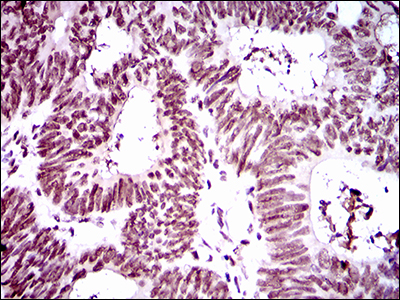
Immunohistochemical analysis of paraffin-embedded rectum cancer tissues using Ring1 mouse mAb with DAB staining.
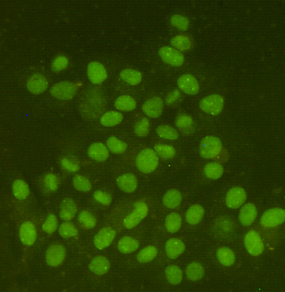
Immunocytochemistry staining of HeLa cells fixed with 4% Paraformaldehyde and using anti-Ring1A mouse mAb (dilution 1:200).
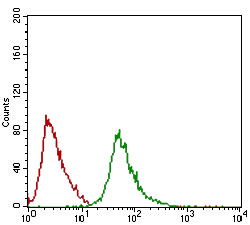
Flow cytometric analysis of Hela cells using Ring1 mouse mAb (green) and negative control (red).
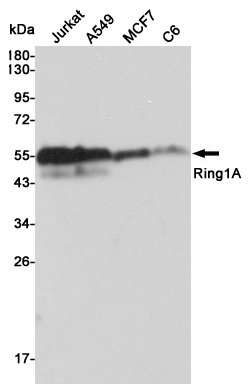
Western blot analysis of extracts from Jurkat,A549,MCF7 and C6 cell lysates using Ring1A mouse mAb (1:3000 diluted).Predicted band size:42KDa.Observed band size:54KDa.
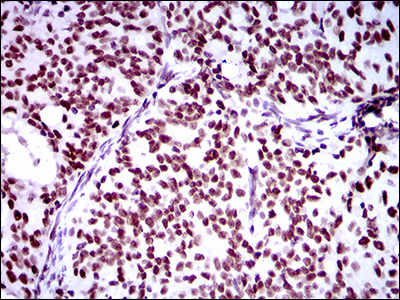
Immunohistochemical analysis of paraffin-embedded cervical cancer tissues using Ring1 mouse mAb with DAB staining.
-
Background
Swiss-Prot Acc.Q06587.This gene belongs to the RING finger family, members of which encode proteins characterized by a RING domain, a zinc-binding motif related to the zinc finger domain. The gene product can bind DNA and can act as a transcriptional repressor. It is associated with the multimeric polycomb group protein complex. The gene product interacts with the polycomb group proteins BMI1, EDR1, and CBX4, and colocalizes with these proteins in large nuclear domains. It interacts with the CBX4 protein via its glycine-rich C-terminal domain. The gene maps to the HLA class II region, where it is contiguous with the RING finger genes FABGL and HKE4.
Related Products / Services
Please note: All products are "FOR RESEARCH USE ONLY AND ARE NOT INTENDED FOR DIAGNOSTIC OR THERAPEUTIC USE"
